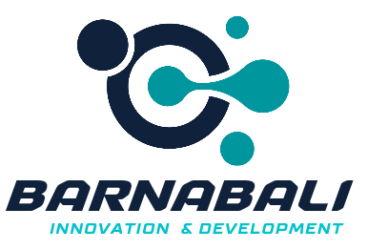Comprehensive Market Research and Lead Generation Strategies
Conducting comprehensive market research is crucial for businesses aiming to understand market trends, consumer behavior, and the competitive landscape. This foundational step enables companies to make informed decisions and tailor their strategies to meet market demands effectively. Several methods and tools are instrumental in carrying out thorough market research.
Surveys are a popular method for gathering quantitative data from a broad audience. They provide insights into customer preferences, purchasing habits, and satisfaction levels. Focus groups, on the other hand, offer qualitative data by engaging a select group of individuals in detailed discussions. These discussions can reveal deep-seated consumer attitudes and perceptions that are not easily captured through surveys.
In addition to traditional methods, modern data analysis software plays a pivotal role in market research. Tools like SPSS, Tableau, and Google Analytics allow businesses to process large volumes of data efficiently. They help in identifying patterns, trends, and correlations that inform strategic decisions. By leveraging these tools, companies can gain a competitive edge through data-driven insights.
Effective lead generation is another critical component of business growth. Digital marketing channels, such as search engine optimization (SEO), pay-per-click (PPC) advertising, and email marketing, are essential for attracting potential customers. These channels ensure that businesses can reach a wider audience and engage them effectively.
Content marketing is equally vital. By creating valuable, relevant, and consistent content, businesses can attract and retain a clearly defined audience. Blog posts, whitepapers, and webinars are excellent ways to provide potential customers with information that addresses their needs and pain points.
Social media platforms also offer vast opportunities for lead generation. Platforms like LinkedIn, Facebook, and Instagram enable businesses to connect with prospects, share content, and build relationships. Through targeted advertising and community engagement, companies can convert potential leads into loyal customers.
In conclusion, comprehensive market research and robust lead generation strategies are indispensable for driving business growth. By utilizing a combination of traditional and digital tools, businesses can make informed decisions, attract and convert leads, and stay ahead in a competitive market.
Streamlining Export and Import Operations Through Commercial & Logistics Documentation Support
In the realm of international trade, commercial and logistics documentation plays an indispensable role in ensuring smooth and efficient export and import operations. The various types of documentation required, such as invoices, bills of lading, certificates of origin, and customs declarations, serve as essential instruments for the legal and logistical validation of goods moving across borders.
An invoice is a crucial document that provides detailed information about the goods being shipped, including their value, quantity, and terms of trade. The bill of lading, on the other hand, is a legal document issued by a carrier to acknowledge receipt of cargo for shipment. It acts as a shipment receipt and a document of title, outlining the terms under which goods are to be transported. Certificates of origin validate the country of manufacture of the goods, which is often a requisite for customs clearance and determining applicable tariffs. Customs declarations are mandatory for providing information about imported goods to customs authorities, ensuring compliance with national laws and regulations.
The accuracy and compliance of these documents are paramount, as any discrepancies can lead to significant delays, increased costs, and even penalties. Errors in documentation can disrupt the supply chain, creating bottlenecks that impede the timely delivery of goods. Therefore, businesses must prioritize meticulous attention to detail in preparing and verifying these documents to avoid such adverse outcomes.
Digital technology has revolutionized the way businesses handle commercial and logistics documentation. By digitizing these processes, companies can streamline their operations, reducing manual errors and enhancing efficiency. Digital tools and platforms enable real-time tracking, automated data entry, and seamless communication between stakeholders, significantly reducing the administrative burden associated with international trade. These innovations not only expedite the documentation process but also improve data accuracy and compliance, thereby mitigating risks and facilitating smoother cross-border transactions.
Professional support in managing documentation can further optimize these benefits. Expertise in commercial and logistics documentation ensures that all necessary paperwork is correctly completed and submitted, aligning with regulatory requirements and industry standards. This professional oversight is invaluable in navigating the complexities of international trade, enabling businesses to focus on their core operations while ensuring legal and logistical precision.

